After leaving the EU, an increasing number of UK businesses are discovering that the world really is their oyster as exports to, and imports from non-EU countries continue to rise.
One reason for this is the new and largely unprecedented customs red tape and mountains of paperwork that has encouraged them and many others to explore opportunities in the Far East, and Southeast Asia in particular.
Why Southeast Asia?
As we’ve been saying for some time, Southeast Asia offers many trading advantages for UK businesses. It has an already well established trading route with the UK as well as a strong willingness to do business with us.
It’s also a growing market with low labour costs, a highly skilled workforce, and a diverse range of suppliers. For UK companies looking to source goods from Southeast Asia or establish a supply chain partner there, the outlook certainly appears promising.
In fact, only recently, the UK government stated that a trade deal with the region is a top priority as part of its ‘global partnership’ programme.
To put this into perspective, in 2019, the UK clocked up a $35 billion trade in goods with the region. However, it must be said, that despite our government saying that ‘trade is a strong driving force in the UK, and we are extremely proud of our history of free trade’ Covid-19 and Brexit has had a major impact on us striking new trade deals in Southeast Asia.
Supply chains
Another challenge facing UK businesses wanting to establish a reliable supply source in the region, is how to ensure supplier reliability, consistent product quality and a trouble-free smooth delivery.
This has been emphasised by the fact that since March 2020, and the outbreak of the Covid-19 pandemic, existing UK importers have been prevented from visiting the area to carry out supplier audits.
And despite the UK starting to unlock, travel restrictions remain in place for most countries for the foreseeable future. At the time of writing, Malaysia is on the UK government’s amber list.
This means that only essential travel is permitted (visiting a supplier to undertake an audit is unlikely to come under this category) with all travellers having to self-isolate for 14-days in a state designated facility – at their own cost, currently around £800.
Does this mean UK importers are currently unable to quality control their supply chain in Southeast Asia?
Supplier audits – a detailed analysis of a supplier’s systems and processes – are an integral and essential part of the total supply chain. With UK businesses now looking to this region for further expansion, Mosaic International has highlighted the need for a more reliable and robust audit process to be established.
The UK government is keen to establish trade deals with the 10-member countries that make up the Association of South East Nations (ASEAN) and we are keen to help UK businesses trade successfully with this blossoming territory. However, as we have seen over the past 18 months, the region has been effectively off limits.
Supplier audits
We are pleased to announce the launch of a new service that provides a solution to what will be an ongoing problem.
We have developed an ‘on the ground’ supplier audit service, that is physically based in the local territory of your supplier. That means no more having to rely on temperamental technology and time consuming video conferencing.
Initially, this new service will focus on Malaysia, but we expect it to be expanded throughout the region over time.
How does it work?
Having a locally based supplier auditor offers major advantages; they can immediately respond to changing circumstances, such as a global virus pandemic, transport blockages, natural disasters, or political upheaval, as well as changing tariffs, new legislation, and trade agreements.
One of the biggest advantages is that they understand the local culture. This gives our clients a major competitive advantage. Those businesses that have been dealing with this region for some time will know how different working practices are here compared to the UK.
Culture can be a stumbling block when trading with Southeast Asia. Not everyone speaks English (also documentation may not be available in English) and there is a very different way of working. We also find that communication is less direct and confrontational than what we are used to in the West.
Your local auditor
This is where a locally based auditor really comes into their own. They can quickly pinpoint potential issues enabling clients to respond immediately and put remedial processes in place.
A good example of this is pricing. Asian suppliers are reluctant to reduce staffing levels during an economic downturn, as experienced during the recent Covid-19 pandemic. This can, therefore, have a knock-on effect of increasing the contracted price.
Our local supplier auditor will pick this up and recommend action to be taken.
There is no doubt that global purchasing is going to increase in the future and Southeast Asia is going to be on most importers list. This means, that with more metrics monitoring and an absolute need to nurture a third-party relationship, a local supplier auditor is the key to increasing margins and avoiding reputational damage.
Our ‘on the ground’ supply chain auditing service covers critical areas such as:
- Safeguarding your reputation with customers
- Ensuring legal compliance, especially regarding data protection
- Securing adherence to environmental issues, in particular zero waste disposal
- Inventory management, including packing, storage, and transportation
- Quality control to an agreed standard
- Implementation of new working practices, to ensure compliance and improve efficiency
- Measuring supplier performance using KPI’s
To discover how you can ensure a reliable and compliant supply chain process direct from Southeast Asia using a Mosaic International locally based auditor, click here, or contact us on 07885 784783 or kiley.tan@mosaicint.co.uk
